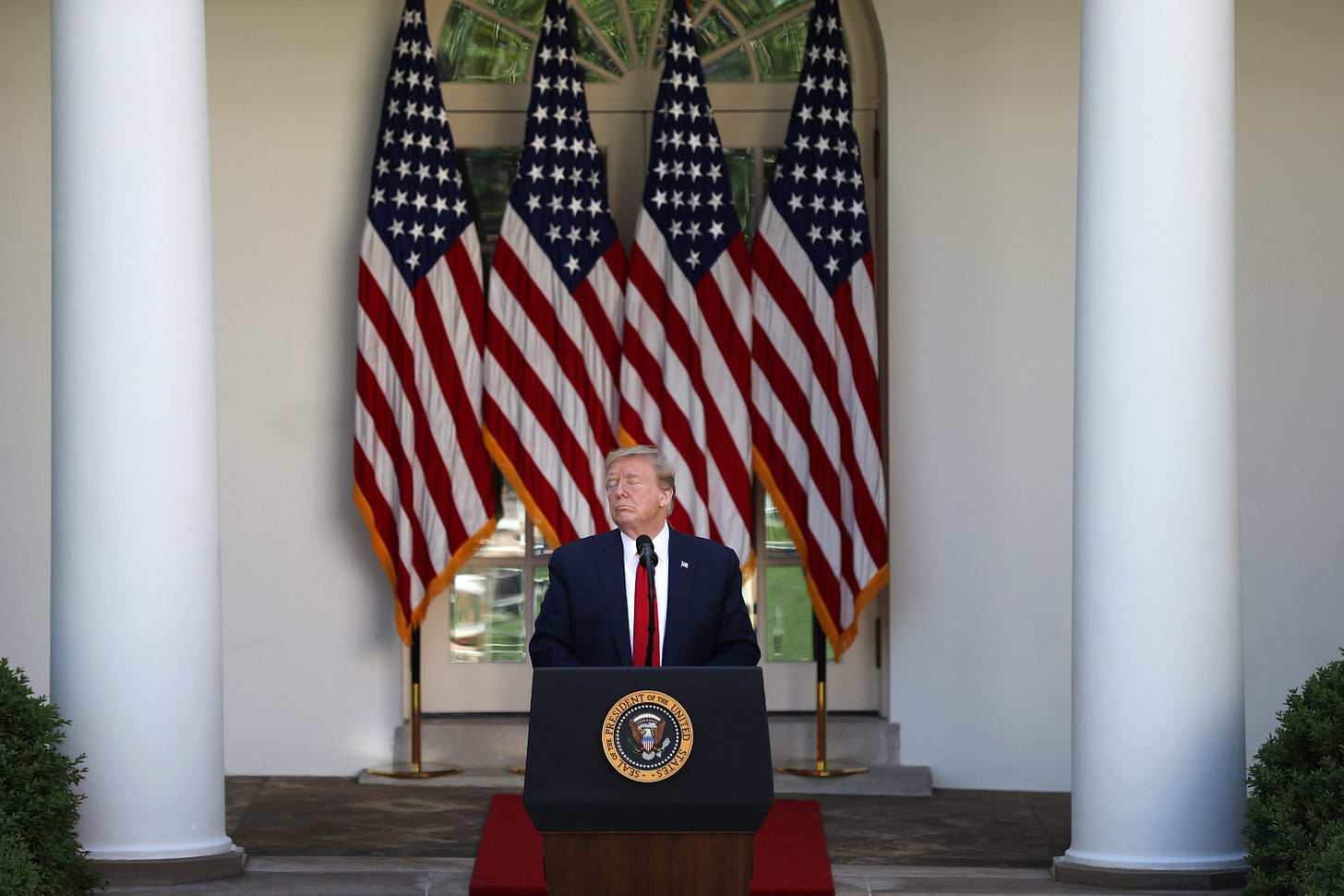Trump, Reagan, and "Mourning in America"

The Lincoln Project’s “Mourning in America” ad has been the defining spot of the 2020 campaign.
The ad is a play on Ronald Reagan’s classic 1984 reelection ad, “Morning in America.” And it seems to have triggered President Trump. Which was interesting, because his response only served to further underscore how different Trump is from Reagan.
Trump has been remarkably successful at quashing intraparty dissent by bullying and attacking his critics—often until they lose their seats to Democrats.
Reagan—who also faced elite opposition early in his national career—united the GOP in a different way. Longtime aide Lyn Nofziger explained: “The thing you have to understand about Ronald Reagan—which is one reason he’s a good politician for a non-politician—is he’s an includer. He believes you bring people in.”
For example, Reagan’s most formidable opponent in the 1980 nomination contest was George H.W. Bush, who defeated him in the Iowa caucuses. Reagan tapped Bush as his running mate, and after their victory, he named Bush campaign manager James Baker as his chief of staff.
Trump has also departed from the Reagan model on matters of policy. His signature issue was a promise to build a physical wall along the entire U.S.-Mexico border. In 1980, Reagan rejected precisely this idea. “Rather than making them, or talking about putting up a fence, why don’t we work out some recognition of our mutual problems?” In 1986, he signed a landmark immigration reform bill that provided legal status to millions of undocumented immigrants.
Trump has imposed higher tariffs on Chinese goods. As a caller suggested during the Trump show at the Lincoln Memorial, Americans bear most of the cost. Reagan made compromises on the issue, but he believed in free trade. In fact, the proposal with which he launched his 1980 campaign was “The North American Accord,” which eventually became the North American Free Trade Agreement. Trump called NAFTA “a disaster,” though he ended up signing an updated version of the pact.
Trump distrusts international cooperation—at least with allied democracies. He has claimed that our allies do not pay enough for defense, and once made a casual comment about breaking up NATO. Reagan was old enough to remember the consequences of isolationism in the early part of the twentieth century. He supported the Western alliance and he anticipated the kind of criticism that Trump would make. While supporting more burden-sharing, he concluded that we “should not give in to the temptation to transmute a small difference in a historic relationship into a major disagreement that might end up damaging the greatest foreign policy success of the postwar era.”
Reagan combined internationalism with a belief in a special role for the United States. During his farewell address to the nation, he explained what this shining city on a hill meant to him: A proud city
teeming with people of all kinds living in harmony and peace—a city with free ports that hummed with commerce and creativity, and if there had to be city walls, the walls had doors, and the doors were open to anyone with the will and the heart to get here.
Trump not only wants to shut the doors; he has disdained the whole idea of American exceptionalism. “I don’t like the term,” he said in 2015:
I’ll be honest with you. People say, “Oh he’s not patriotic.” Look, if I’m a Russian, or I’m a German, or I’m a person we do business with, why, you know, I don’t think it’s a very nice term. We’re exceptional; you’re not. First of all, Germany is eating our lunch. So they say, “Why are you exceptional? We’re doing a lot better than you.” I never liked the term.
Reagan understood, as Trump does not, the roots of our exceptionalism. In his 1992 speech to the Republican National Convention, he told America’s young people to “love your country, not for her power or wealth, but for her selflessness and her idealism.”
By scorning such ideas, Trump has defined himself as the un-Reagan. “Mourning in America” should be a fitting epitaph to his nightmare-zombie version of Republicanism.

